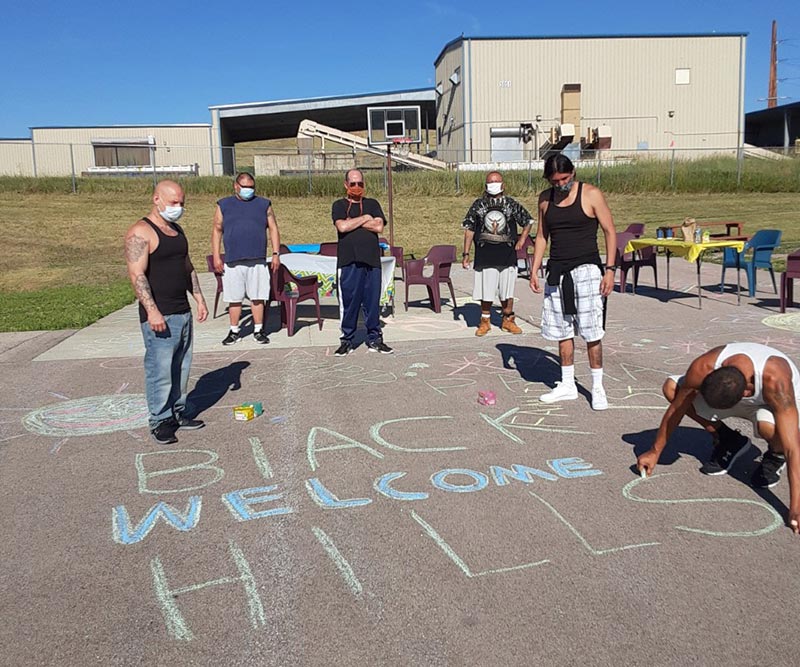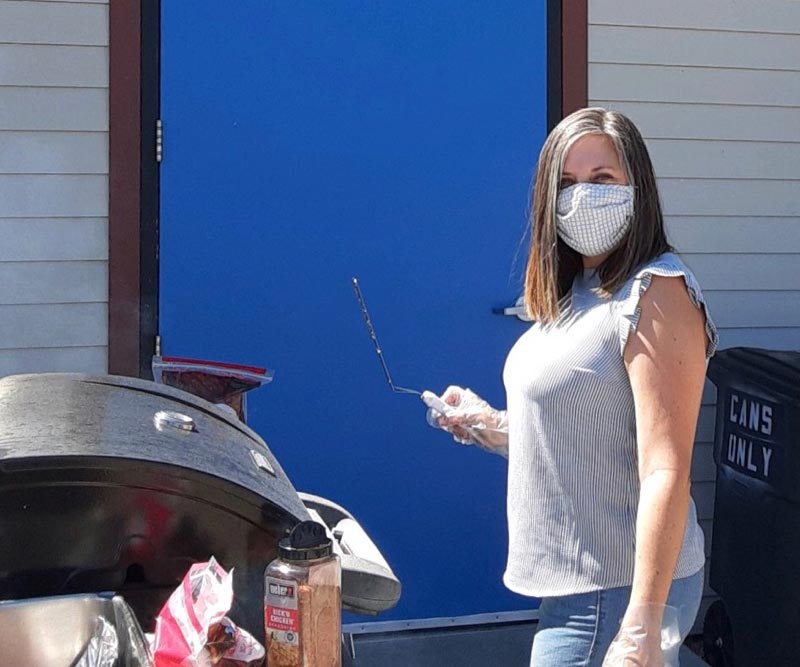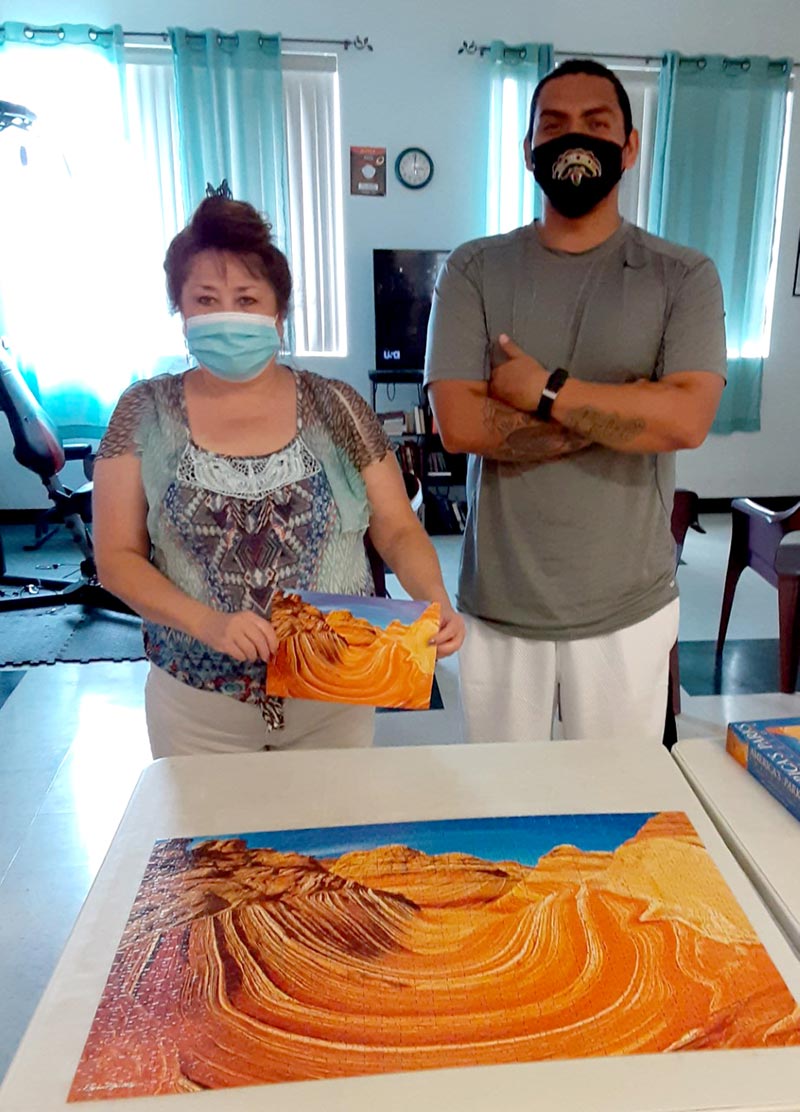Residents and staff of Community Alternatives of the Black Hills in Rapid City, South Dakota recently enjoyed a “Summer Fun Activities” barbecue in honor of their hard work in the residential reentry center’s Family Services Program Curriculum.
At the event, residents wore masks and sat at socially distanced tables as they enjoyed a festive outdoor meal sponsored by GEO Group Family Services National Manager Frank Gonzalez. CABH Deputy Director Derek Schuster did the grilling, while Facility Director Tessa LaHaie and Social Work Coordinator Joan Freiberg helped coordinate the meal and manage COVID-19 health and safety precautions to keep attendees safe during the event.
Due to the pandemic, residents’ families were not permitted to attend the barbecue this year, but Gonzalez said residents and staff still appreciated the opportunity to enjoy the food and fresh air.
“We’re pleased to continue to carry the message of GEO Family Services, even in this unprecedented time,” said Gonzalez. “Although family members were not able to attend the event this year, we continue to focus on our goal of the importance of family reunification and creating a strong family support system.”
South Dakota is home to nine Native American tribes with a diverse range of cultures, religions, customs and traditions, and all nine are represented by residents at CABH, including Cheyenne River Sioux, Crow Creek Sioux, Flandreau Santee Sioux, Lower Brule Sioux, Oglala Sioux, Rosebud Sioux, Sisseton Wahpeton Oyate, Standing Rock Sioux and Yankton Sioux. Program participants are referred from the Federal Bureau of Prisons and come from various reservations around South Dakota.



Activities at the barbecue included a puzzle competition and using sidewalk chalk to write Native language phrases like “Welcome to the Black Hills” and “Paha Sapa,” which means “Black Hills” in the Lakota language, and to draw Native American imagery like suns, feathers and other cultural symbols.
Studies indicate that family services programming can interrupt the cycle of generational incarceration, and GEO Reentry’s Family Services Curriculum is designed to establish family reunification, address the challenges of having a loved one in prison and provide tools for creating and sustaining positive family relationships going forward.
In addition to Family Services, the center also offers cognitive behavioral therapy; substance abuse treatment; classes in employment skills, reducing criminal thinking and gender-specific issues; employment assistance, and culturally centered therapy techniques, including a talking circle and sweat lodge. Residents also have access to employment counseling and job placement assistance to prepare them to reintegrate into the community.
“We take pride in providing GEO Reentry programming that encompasses family services, and culturally sensitive services to our Native American participants,” said CABH Facility Director Tessa LaHaie.
